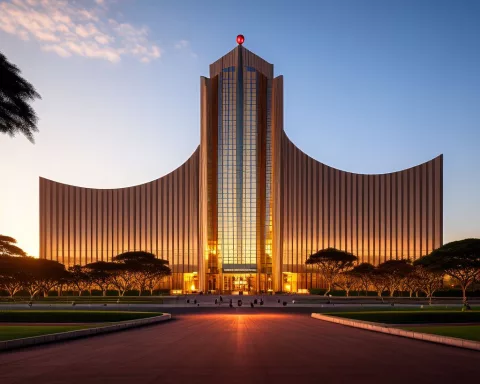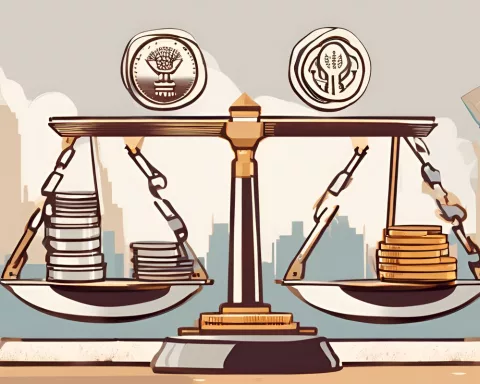The SAAPAM 23rd Annual Conference in Rustenburg brought together important leaders and thinkers to discuss South Africa’s growth since the end of apartheid. Deputy Minister Seiso Mohai emphasized the need for ethical leadership, active citizenship, and better strategies for creating jobs and reducing poverty. The conference focused on planning for the future, including a new Medium-Term Development Plan aimed at improving education, healthcare, and safety. Mohai encouraged everyone to collaborate and innovate, reminding them that this gathering was about building a brighter future for all South Africans.
What were the key themes discussed at the SAAPAM 23rd Annual Conference?
The SAAPAM 23rd Annual Conference focused on several key themes:
1. Reflecting on South Africa’s post-apartheid journey.
2. The need for ethical leadership and active citizenship.
3. Strategies for inclusive growth and effective governance.
4. Collaboration for developing the Medium-Term Development Plan (MTDP) 2024-2029.
A Gathering of Visionaries in Rustenburg
Within the scenic confines of Rustenburg, North West Province, the 23rd Annual Conference of the South African Association of Public Administration and Management (SAAPAM) unfolded. The prestigious Sun City venue provided a stage for an assembly of luminaries, including North West Province Premier Lazarus Mokgosi, various Ministers and Deputy Ministers, MECs, and esteemed academics. The atmosphere buzzed with excitement as Deputy Minister Seiso Mohai addressed the audience in multiple languages, fostering an environment of inclusiveness and unity.
This year’s conference theme, “Post-Apartheid South Africa at 30: Making Sense of the Past, Understanding the Present, and Charting the Future of the Administration of the State,” carried deep significance. It invited attendees to reflect on the nation’s progress since the end of apartheid. Deputy Minister Mohai began his speech with a quote from Pablo Neruda, highlighting the linkage between past, present, and future.
Examining South Africa’s Journey and Ongoing Struggles
The move to democracy in 1994 marked a pivotal moment for South Africa, granting equal rights under a forward-thinking constitution. Despite this, the legacy of apartheid remains, with significant racial disparities in wealth, education, and employment. As South Africa celebrates three decades of democracy, it faces numerous challenges, including unemployment, inequality, poverty, crime, and corruption, all contributing to public dissatisfaction.
Deputy Minister Mohai raised several critical questions: “Can we learn from the 30-Year Review since democracy began, from a SAAPAM perspective? Where are the flaws in our service delivery? Which policies should we abandon, and which should we reinforce?” These questions highlighted the need for reflection and strategic adjustments to address these persistent issues.
Ethical Leadership and Active Citizenship
Deputy Minister Mohai’s speech was a powerful call for ethical leadership and active citizenship. He urged conference attendees to rebuild trust among the populace and ensure that public servants demonstrate integrity and accountability. This message resonated deeply with the audience, emphasizing the urgency of tackling the challenges facing South African society.
“Our nation’s political future and economic stability hinge on diverse political parties forming the Government of National Unity (GNU) since June 2024. At this crucial moment, you are tasked with restoring trust among our citizens,” he stated. The repeated emphasis on ethical leadership underscored the government’s dedication to combating corruption and enhancing the professionalization of the public sector.
Strengthening Collaboration: DPME and SAAPAM
Deputy Minister Mohai underscored the long-standing partnership between the Department of Planning, Monitoring, and Evaluation (DPME) and SAAPAM in public administration, monitoring, and evaluation. This collaboration was formalized through a Memorandum of Understanding (MoU) in April 2023. The DPME aims to foster coherence in government through institutionalized planning, an integrated monitoring system, and evaluation of critical government programs.
The partnership’s objective is to shape development strategies for the 7th administration. The conference’s discussions are expected to generate ideas that will promote an inclusive economy, enhance social welfare, and build a capable, ethical, and developmental state.
Strategic Priorities for MTDP 2024-2029
Deputy Minister Mohai outlined the DPME’s role in coordinating the development of the Medium-Term Development Plan (MTDP) 2024-2029. This five-year plan will focus on three main priorities: fostering inclusive growth and job creation, reducing poverty and addressing the high cost of living, and building a capable, ethical, and developmental state.
The MTDP aims to boost investment in education, skills development, and affordable quality healthcare. It seeks to enhance state capacity and establish a professional, merit-based, and corruption-free public service. The National Development Plan Vision 2030 envisions a transformative and developmental role for the state, requiring well-managed and effectively coordinated institutions staffed by skilled public servants.
Enhancing Security and Law Enforcement
Deputy Minister Mohai expressed optimism regarding the 6th administration’s efforts to bolster law enforcement agencies, tackling crime, corruption, and gender-based violence. These measures are intended to reinforce national security and create a safer society. The successful implementation of the MTDP 2024-2029 hinges on sustained collaboration across all levels of government.
Real-Time Monitoring for Effective Governance
Efforts are being made to establish a dashboard that will provide the President with real-time insights into government performance. This tool will be pivotal in decision-making, ensuring the swift resolution of bottlenecks in the implementation process. The MTDP will also be supported by a robust and integrated monitoring system to track real-time progress in key indicators.
Engaging and Innovating for Progress
In his concluding remarks, Deputy Minister Mohai urged participants to engage actively and share their ideas. “This is not merely a conference; we are here to build,” he said. He stressed the importance of collaboration and innovative thinking in driving change and enhancing people’s lives.
Investing in Public Sector Training
To further professionalize the public sector, the government plans to invest in training through the National School of Government. This initiative aims to cultivate leaders who prioritize service excellence and uphold the values of Batho Pele. The Deputy Minister’s call for a public service that meets and exceeds citizen expectations received enthusiastic applause, reflecting the audience’s shared commitment.
The SAAPAM 23rd Annual Conference served as more than a discussion forum; it was a beacon of hope and a rallying call. The ideas and collaborations generated here will undoubtedly shape the future of public administration in South Africa. As the nation continues its journey towards a more inclusive and equitable society, the roles of ethical leadership, active citizenship, and strategic planning remain paramount.
“`markdown
What were the key themes discussed at the SAAPAM 23rd Annual Conference?
The SAAPAM 23rd Annual Conference focused on several key themes:
1. Reflecting on South Africa’s post-apartheid journey.
2. The need for ethical leadership and active citizenship.
3. Strategies for inclusive growth and effective governance.
4. Collaboration for developing the Medium-Term Development Plan (MTDP) 2024-2029.
Who were the notable attendees at the conference?
The conference gathered an assembly of luminaries, including North West Province Premier Lazarus Mokgosi, various Ministers and Deputy Ministers, MECs, and esteemed academics. This diverse group contributed to the discussions and emphasized the importance of collaborative efforts in public administration.
What is the Medium-Term Development Plan (MTDP) 2024-2029?
The MTDP 2024-2029 is a five-year strategic plan aimed at improving various sectors in South Africa. Its key priorities include fostering inclusive growth and job creation, reducing poverty, and enhancing state capacity through a professional, ethical, and merit-based public service. The plan is designed to address current socio-economic challenges and improve overall governance.
How does Deputy Minister Mohai view the role of ethical leadership?
Deputy Minister Mohai emphasized that ethical leadership is crucial for rebuilding trust among citizens and ensuring accountability in public service. He highlighted the importance of integrity in leadership as a cornerstone for the nation’s political future and economic stability.
What initiatives are being taken to improve public sector training?
The government plans to invest in training through the National School of Government to professionalize the public sector. This initiative aims to cultivate leaders who prioritize service excellence and uphold the values of Batho Pele, thereby enhancing the quality of governance and public service delivery.
How will real-time monitoring improve governance in South Africa?
The establishment of a dashboard providing the President with real-time insights into government performance is a key initiative. This tool will facilitate timely decision-making and help to address bottlenecks in the implementation of government policies. The MTDP will also be supported by an integrated monitoring system to track progress on critical indicators.
“`












